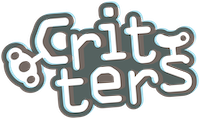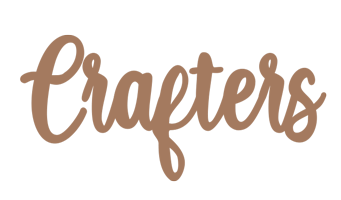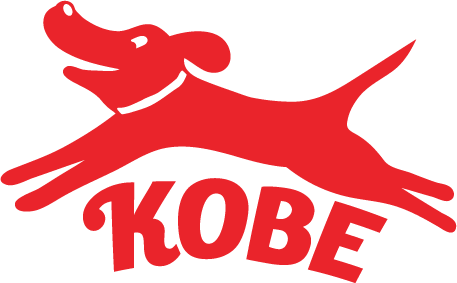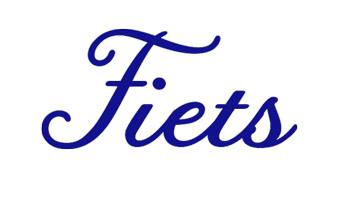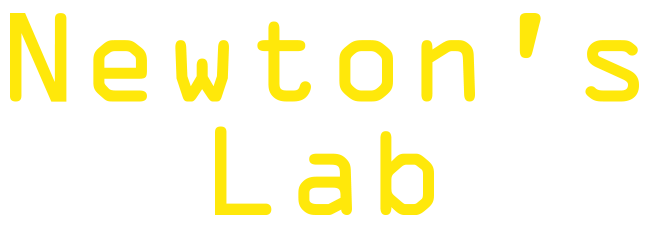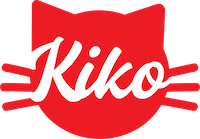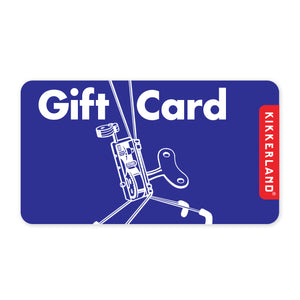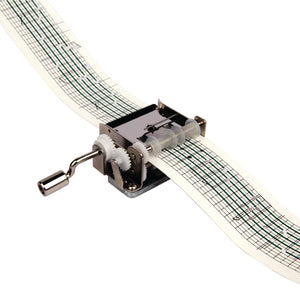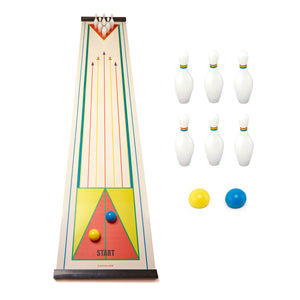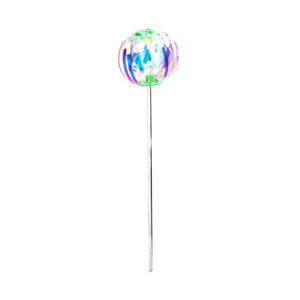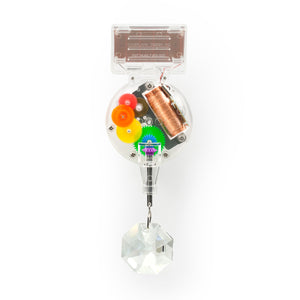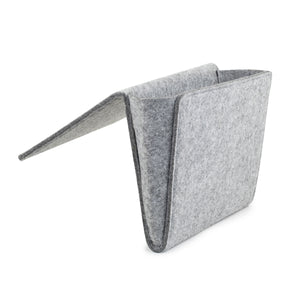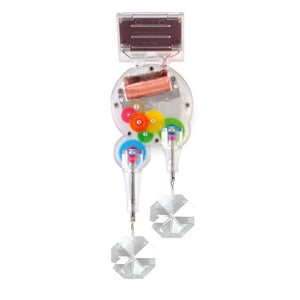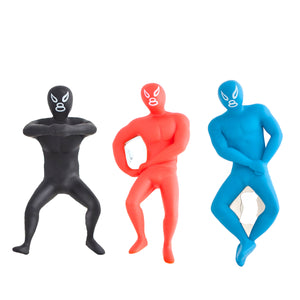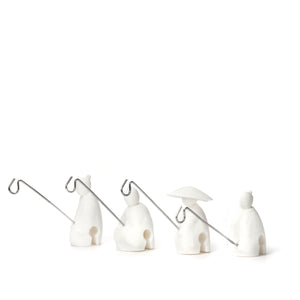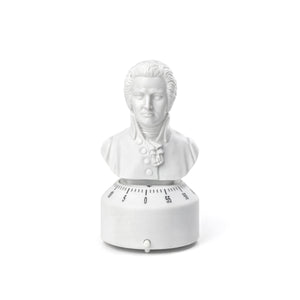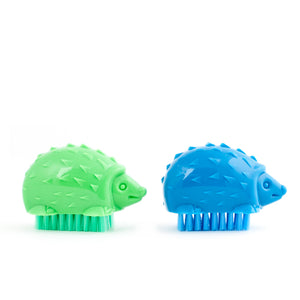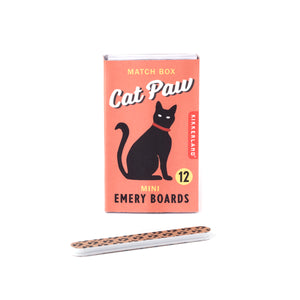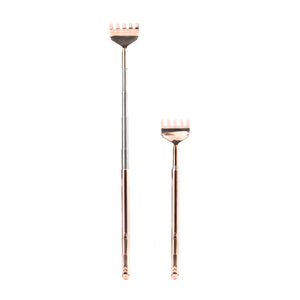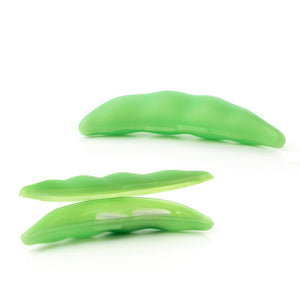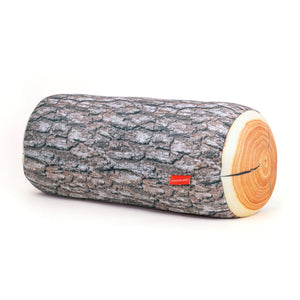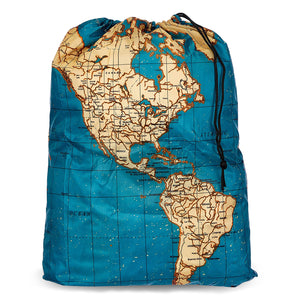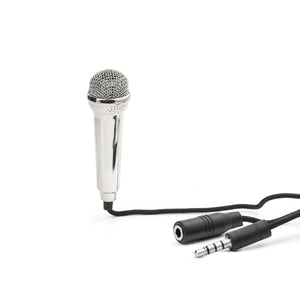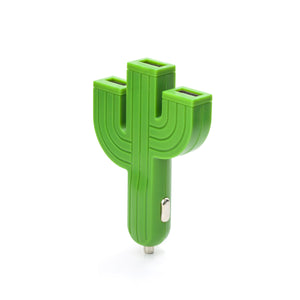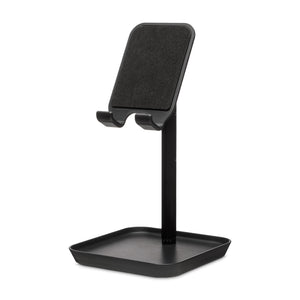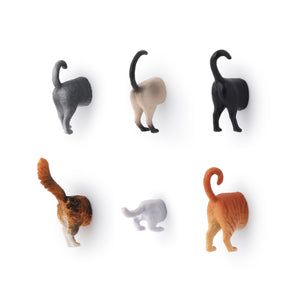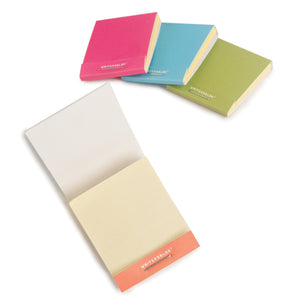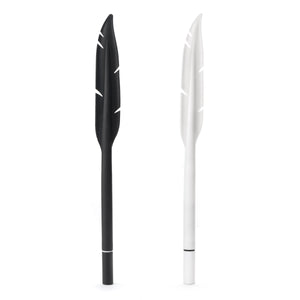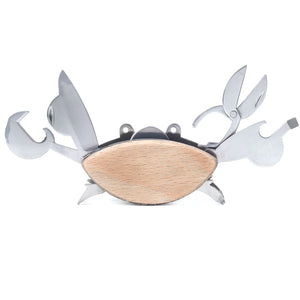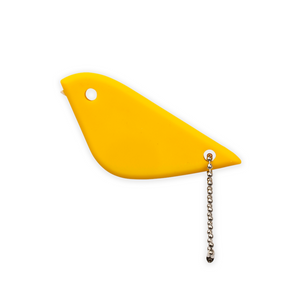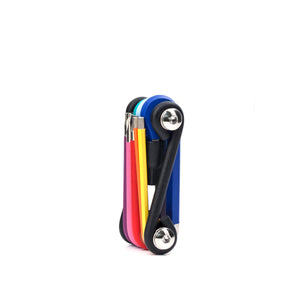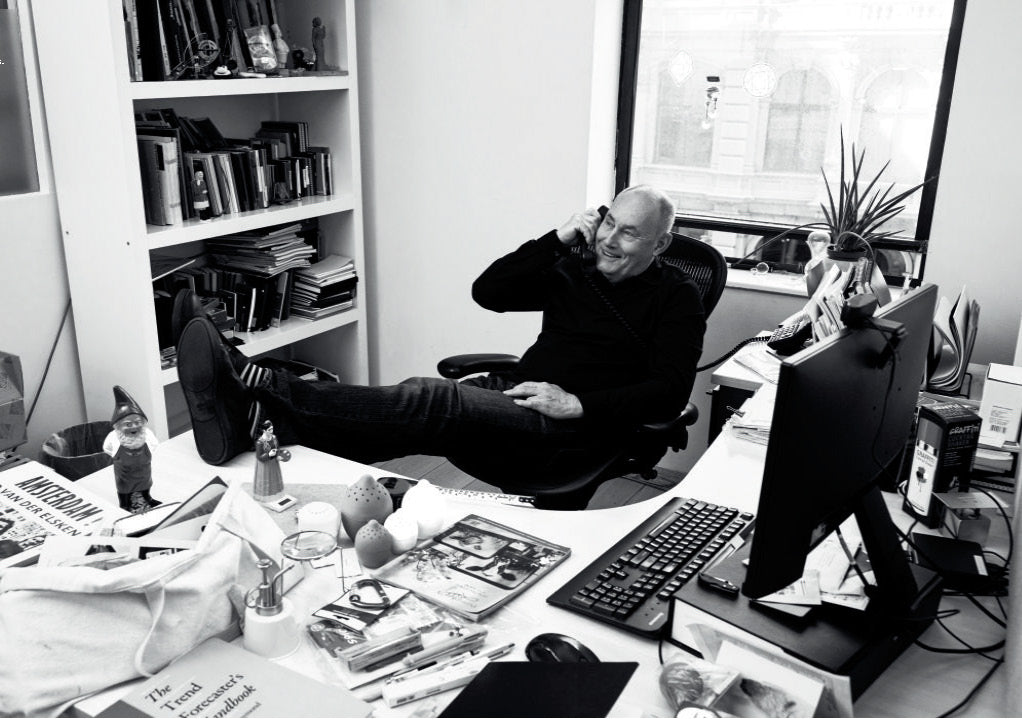Recently, founder and owner of Kikkerland Jan van der Lande was featured in Dutch magazine FD Persoonlijk!
Check out the translated story below.

The man behind Kikkerland: "Our stuff makes people happy"
Written by Monique van de Sande
Jan van der Lande is 65 years old and still has both feet firmly planted in his company Kikkerland, which has been designing gifts with Dutch pragmatism for decades in New York.
Jan van der Lande loves cycling. This didn't change when he moved to New York City in the early 1980s after studying environmental science at the Rijks Hogere Landbouwschool Groningen. It was logical, then, that a few years later, from his houseboat on the Hudson, he rode his bike through Manhattan to deliver various orders to customers, as an intermediary for producers in the Netherlands. It was a hobby because his job as an engineer at the New York City government didn't provide him with enough satisfaction. "I was 27 and already knew exactly what my life would look like until retirement, that wasn't for me."
 Photography: Roger Neve for the FD
Photography: Roger Neve for the FD
Over time, Van der Lande specialized in designer products, such as those from Rob Dashorst, Chris Koens, and Hella Jongerius, and rented a small basement as a storage space. The breakthrough came when he decided not only to sell the products but also to produce them himself. Kikkerland Design is now a major player worldwide in gadgets and gift items. Characteristic of this status is the location of the headquarters in a neo-Renaissance-style brownstone in the trendy SoHo district. In addition, there are offices in Rotterdam and Hong Kong, as well as an extensive network of around two hundred agents and distributors in Europe, Asia, and the United States.
Accent from Twente
Van der Lande celebrated the 30th anniversary of his company in 2022 and has made it in New York (And if you make it there...). He sees himself as fitting into the American style: "Americans throw their hat over the wall and then run after it. We do the same: we try a lot and then something always sticks." Yet, he perfectly fits the image of the quintessential Dutch person that the name Kikkerland evokes: not a fast talker with a slick tongue, but a down-to-earth Deventenaar with a tendency toward understatement and an accent that leans towards Twents. He still (okay, mostly) lives on a houseboat and, of course, bikes to work: 45 minutes each way. Rain or shine.

Van der Lande goes the extra mile to retain employees: some staff members have been working for him for 25 years Photography: Roger Neve for the FD
Willem-Alexander
Despite the fancy façade, the atmosphere on the work floor - an open office space with about twenty of the forty employees, including his oldest son - is downright cozy. "I'm a Dutch boss," he says. "Less strict than many Americans. I don't really watch the clock. There are many creatives working here who are often messy and occasionally come in late. So what? The end result counts. Since the pandemic, everyone is allowed to work from home two days a week, so you can't even check. For the rest, we're sitting together in a loft for about eight hours anyway, so I want to make it pleasant for everyone. That's why we have lunch together regularly and have happy hour every Friday. And when someone has a birthday, I take him or her out for dinner."
No wonder he can keep good employees. Several employees, such as designer Pieter Woudt - also a Dutchman, indeed - have been working for Kikkerland for more than 25 years.
We sit in the glass meeting room, with all kinds of witty Kikkerland designs all around. Obviously the Critter, the wind-up ‘bug’ on thin metal legs, which was the basis of the great success and is still a bestseller. Almost as classic are the well-known Solar Queens: figurines of the late Queen Elizabeth with a handbag with a solar cell that, once charged, provides power to make her hand wave. After her death, according to Van der Lande, they were selling like hotcakes. ‘Several members of the British royal family already had the complete series at home anyway.’ For the irreverent, there are a few Solar Popes next to the Queens, and look: a miniature Willem-Alexander in a Marine uniform, also with a waving hand. ‘A joke by designer Chris Collicott – that version was never put into circulation.’
Everything you produce looks funny and cheerful. Is humor a criterion? "Well, not the first one," he replies. "We exist thanks to our customers, so the crux of the matter is: who can we sell it to? Every product has to be original. But of course, we know that customers like us because we're not that serious, so we do try to make things attractive." He points to a small plastic box that looks like a lemon. "You see refrigerator fresheners often, but ours has a timer so you know when to replace the active ingredient - in this case, baking soda. And we've given it this shape so you immediately make the connection with freshness."
Target groups and trends, that’s what Kikkerland is all about. Van der Lande therefore gladly pays for the expensive subscription to the reports of forecaster WSNG. Although he can see some trends coming to the naked eye, such as the wellness craze that followed the corona pandemic. ‘After such a period of uncertainty and isolation, people look for reassurance and comfort, and preferably also something they can share with others. We try to come up with new things around that.’ ‘We’ refers to his regular team of industrial designers and himself. They meet weekly. ‘Then I review the designs, and then it’s a yes or a no. Quite often a yes by the way, because we have been making fewer new products per year since the pandemic, but still about 120.’
At Kikkerland, everything revolves around target groups and trends. Van der Lande is happy to pay for the expensive subscription to the WSNG forecaster reports. He can see some trends coming with the naked eye, such as the wellness craze that followed the coronavirus pandemic. "After a period of uncertainty and isolation, people look for reassurance and comfort, and preferably something they can share with others. That's where we try to come up with new things around." "We" refers to his team of industrial designers and himself. They meet weekly. "Then I go through the designs, and it's a yes or no. Quite often a yes, though, because since the pandemic, we're making fewer new products per year, but still around 120."

Photography: Roger Neve for the FD
You decide? 'Always.' With a hint of irony in his gaze: 'If things don't sell well, it's at least my own fault.' He is willing to give an example: 'A bag in the shape of a gun, following the skull trend. When a few more shooting incidents occurred, it turned out to be not such a good idea. Sometimes we are also too early, like with the comeback of the Memphis style. We saw it already at fairs in Europe in 2020, but people here in the US were like: huh, Memphis Tennessee? So, we didn't reorder anything, and a year later it suddenly became a big hit. Then you do think: shit!'
Van der Lande explains that the market, at first glance, is a pyramid, with expensive items at the top for trendsetters. If they become cheaper, the market widens. 'But eventually it becomes a diamond: things become cheaper and demand decreases.' With Kikkerland, he tries to be in the broad section. It is not easy because if a product is presented at fairs, distributors should receive their orders within six weeks at most. 'Everything must already be ordered, while the complete production process takes three to six months, and sometimes it takes two years,' he explains. 'First, make a prototype with our 3D printer, then have molds produced in China, and so on, up to designing and manufacturing the packaging. We have to think ahead enormously and estimate risks. Meanwhile, we do have one golden rule: if we want to be too fashionable, we will definitely fail.'
Personal
Jan van der Lande has been happily married to his wife Kazumi, who is originally from Japan, for 31 years. They have three children: son Daisuke (30), daughter Naomi (28), and son Ken (21). Daisuke is the marketing director at Kikkerland.
Entrepreneurial family
It is not surprising that Van der Lande ended up in the business world, as he comes from a family of entrepreneurs. His great-great-grandfather, a miller, switched from milling grain to flaxseed and purchased a state-of-the-art steam engine. The flaxseed oil was sold to the paint industry and later used for the production of pharmaceuticals. His grandfather expanded the business into a conglomerate with twenty factories and 20,000 employees under the name Nori Van der Lande. "Do you know Norit?" Van der Lande asks. "That's where it came from. Unfortunately, my grandfather died early, at the age of 52. His nine brothers and sisters then pulled the entire business apart, and the family split up." His father started a completely different business, selling refrigerant gas for large butcher shops, ships, and cooling machines.
Van der Lande does not see his path through the Rijks Hogere Landbouwschool as a waste of time. "It was a broad education, complete with mechanics and accounting." Laughing, he says, "So I'm pretty handy, and I'm very good at math."
Still, concern for the environment is also somewhere in your system. How do you view the current trend of decluttering? "I think it was mainly the millennials who were done with the consumer society. Generation Z, which comes after them, thinks: we'll be the ones to suffer. They can't afford to buy a house and rents are too high. That changes your perspective on material possessions. Although clutter is certainly a problem. The CEO of Ikea even asked himself aloud why he still designed new cabinets: "How many cabinets does a person need?" But we're in the gift industry and sell beautiful little things that make people happy. A little spark of joy. Even if you're dirt poor, you want to give your child or good friend a small gift on their birthday. That will never go away."
You mainly produce in China. Given the tense political situation, that doesn't seem without risk. Van der Lande nods. "That risk has been there for years. Since the supply chain problems during the pandemic, we've been making wooden products more often in Vietnam and metal products in India. But for many small products we sell, there's really no replacement. The Chinese are just very good at it, with their automated production systems. Apart from the fact that it's three times more expensive elsewhere." With a straight face, "So if China attacks Taiwan and there's a trade embargo, that could mean the end of Kikkerland."
Another good reason to hope that doesn't happen. By the way, are you able to keep your hands clean? "Absolutely. All factories that manufacture our products must undergo very strict official audits, which means they must comply with local rules regarding working conditions and safety. For example, we do not work with factories in Xinjiang, where Uighurs are being oppressed on a large scale. People from our Hong Kong office also visit all factories regularly. China remains a dictatorship, but I have to say that living and working conditions have improved considerably over the past twenty years. In the past, you could barely see the other side of the street because of the smog, whereas now you can see the blue sky again."
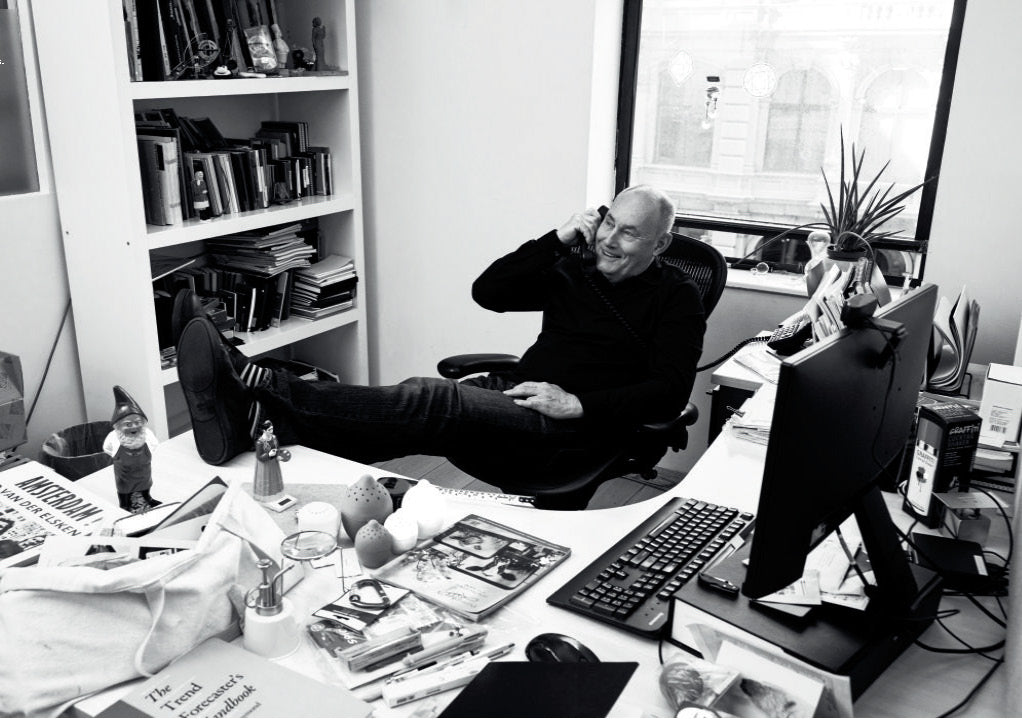
In the office, the atmosphere is nothing short of cozy. ‘Many creatives work here, who sometimes come too late. So what?” Photography: Roger Neve for the FD
You must also see that blue sky often when you are cycling. Do you work long hours? ‘By New York standards, not at all. I’m in the office around ten o’clock and go home around six o’clock. And I don’t work on weekends.’
What do you do for relaxation? "Cycling to and from work, on a wide path along the Hudson, where you only see cyclists and walkers. Ideal for clearing my mind. I also play chess every day. I am a member of a chess club and play matches. I also find traveling relaxing, so that goes well with our presence at fairs. Besides the fair in New York, I still attend the fairs in Paris, Atlanta, and Las Vegas myself. And often those in Tokyo, Sydney, and London."
You are now 65. How do you see the future? ‘I still really like the work, so I don’t plan to stop it anytime soon. Certainly not quite. Then I prefer to phase out something gradually, in order to only deal with product development as an advisor.’ For a moment it seems as if he catches himself: ‘Actually I interfere with everything. I’ll have to unlearn that a bit.’


